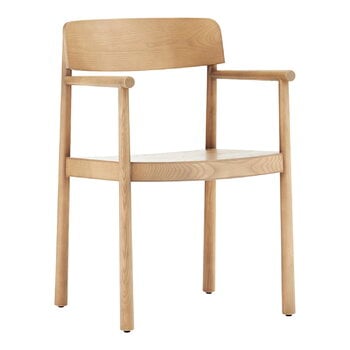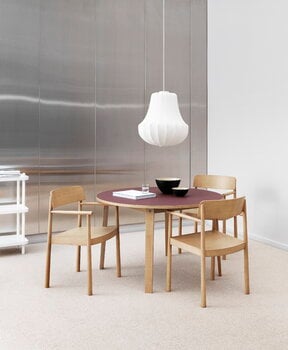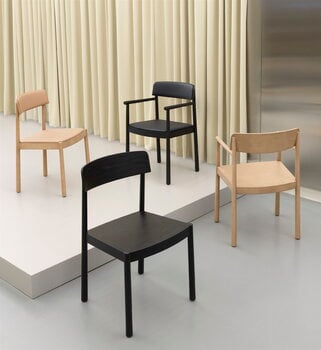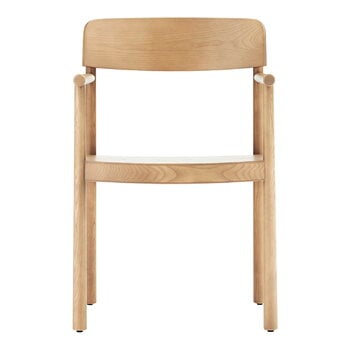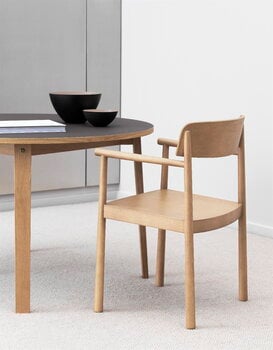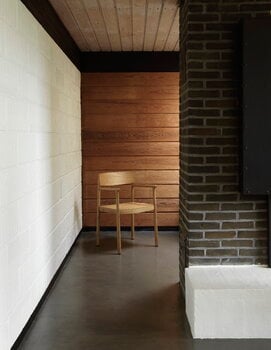Normann Copenhagen’s Timb chair is a tribute to Nordic design and woodworking traditions. Designed by Simon Legald, the Timb chair is crafted from ash, and due to the skillfully made dowel joints, no metal screws have been used. The solid wood frame and the pleasantly wide veneer seat and back have unique wood grain patterns. The end result is a combination of straight and soft lines, as well as refined modesty and bold elegance.
Thanks to their timeless look, the Timb chairs are suited for a large variety of interiors and uses, ranging from domestic dining rooms to conference spaces and from cafés and restaurants to hospitality use. The Timb collection consists of chairs in various designs: with or without armrests and with or without leather upholstery.
